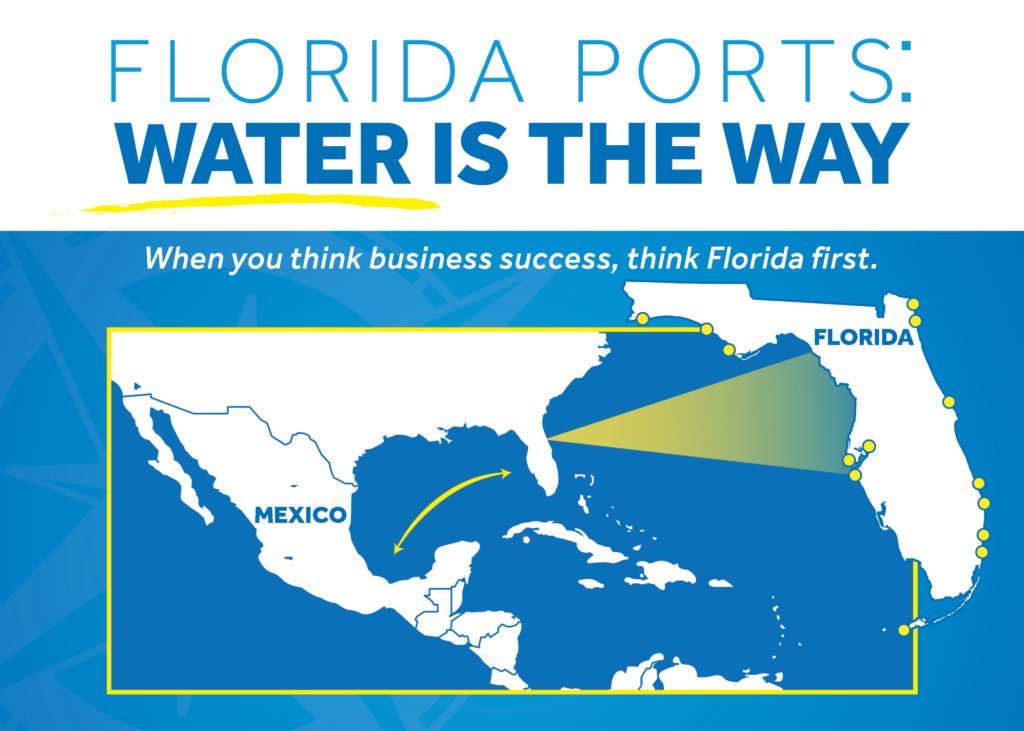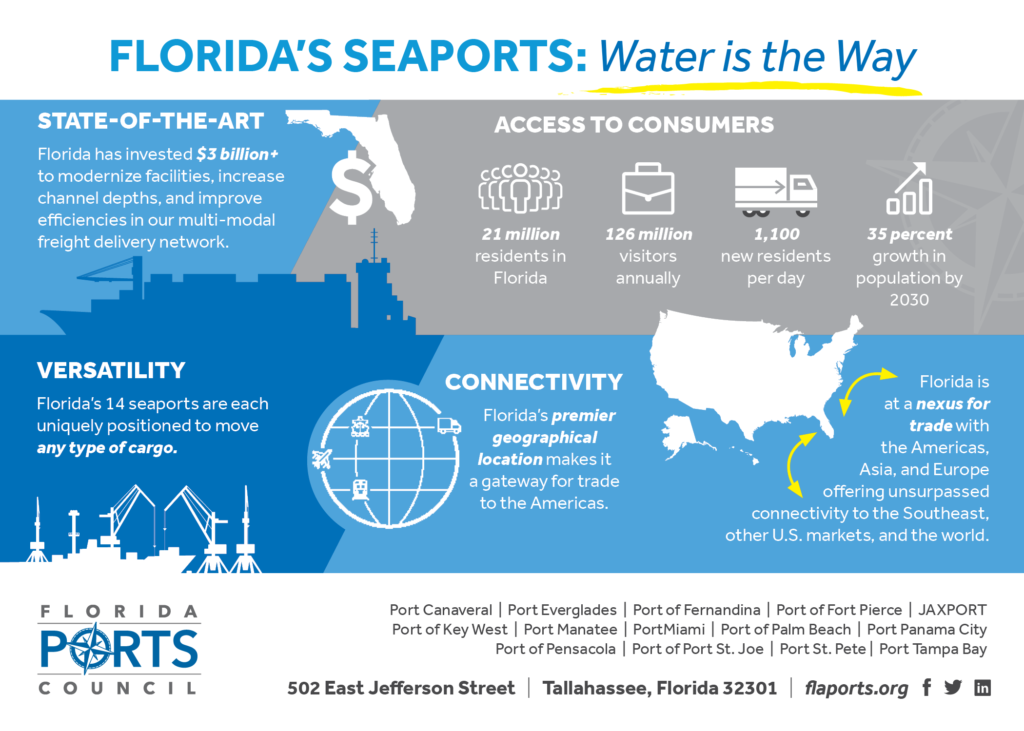News & Updates
FPC leads trade mission to Mexico
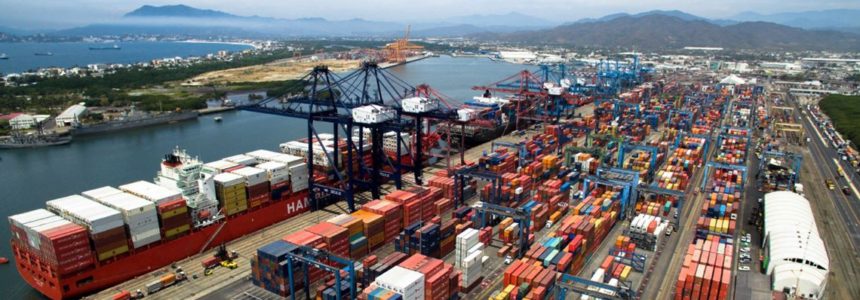
Florida ports put the U.S. market closer than ever to Mexico
Earlier this month, a delegation of members from Florida seaports, the Florida Chamber of Commerce, Enterprise Florida and the Florida Ports Council (FPC) traveled to Mexico City to promote the all-water trade route through Florida. Of Florida’s 14 deepwater seaports, eight sent representatives to Mexico, including port directors, vice presidents of international business development and chief commercial officers from Port Canaveral, JAXPORT, Port Manatee, PortMiami, Port Panama City, the Port of Pensacola, Port Everglades, and Port Tampa Bay.
Florida is a leading global trade hub and counts Mexico in its top ten trading partners. In 2018, Florida’s trade with Mexico reached nearly $6.8 billion, up 8.1% over 2017. With this growth in trade, Florida ports have an opportunity to leverage new and expanding ocean carrier service from Mexico to serve the Florida market.
“The cost and uncertainty related to bringing Mexican cargo over the border is forcing a change on how we transport goods from a key trading partner,” said Juan Kuryla, Chairman of the Florida Ports Council. “Experts agree, the all-water route from Mexican ports to Florida ports is the fastest way to move cargo, while saving on transportation and logistics costs.”
The Florida Ports Council coordinated with Jonathan Chiat Auerbach, the Consul General of Mexico in Miami and Enterprise Florida’s Mexico City office to schedule meetings for the delegation with government officials and agencies, including Alfonso Romo, Chief of Staff to Mexican President Andrés Manuel López Obrador, and customs officials including Gabriela Díaz Maraboto, the Central Administrator for Custom and International Affairs.
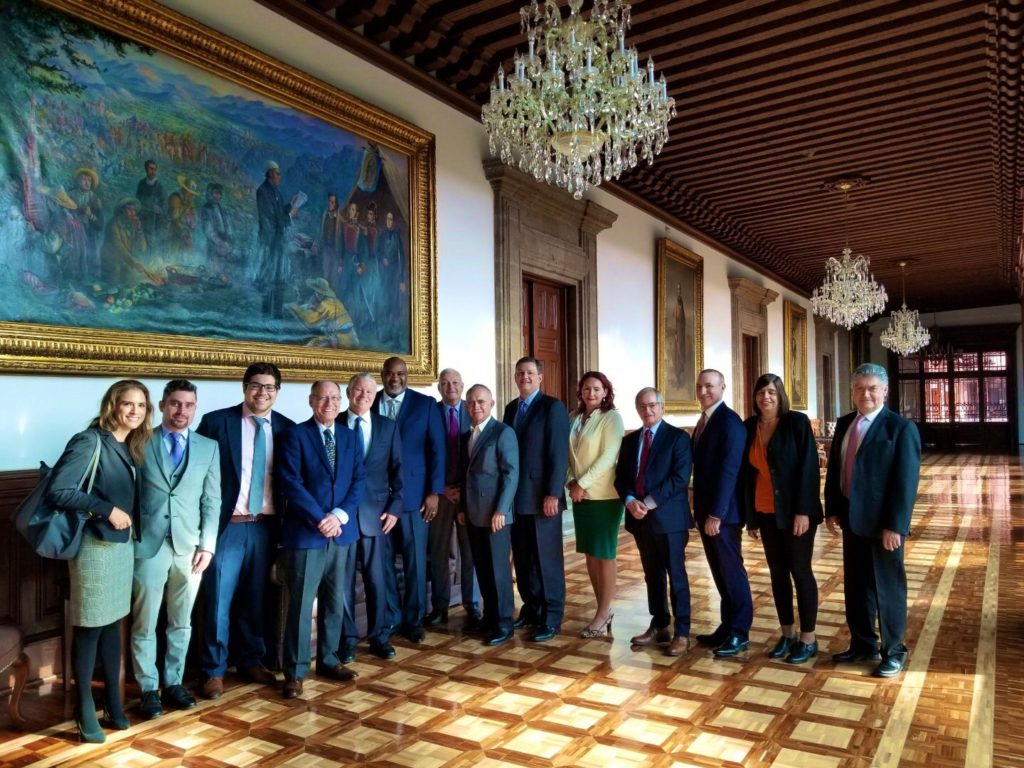
“Our delegation was thrilled to find the President’s office and Customs officials enthusiastic about exploring the benefits and solutions an all-water route can provide,” said Doug Wheeler, president and CEO of the Florida Ports Council. “While Mexico has been one of Florida’s strongest trading partners for years, there are real opportunities currently for growth in bilateral waterborne trade.”
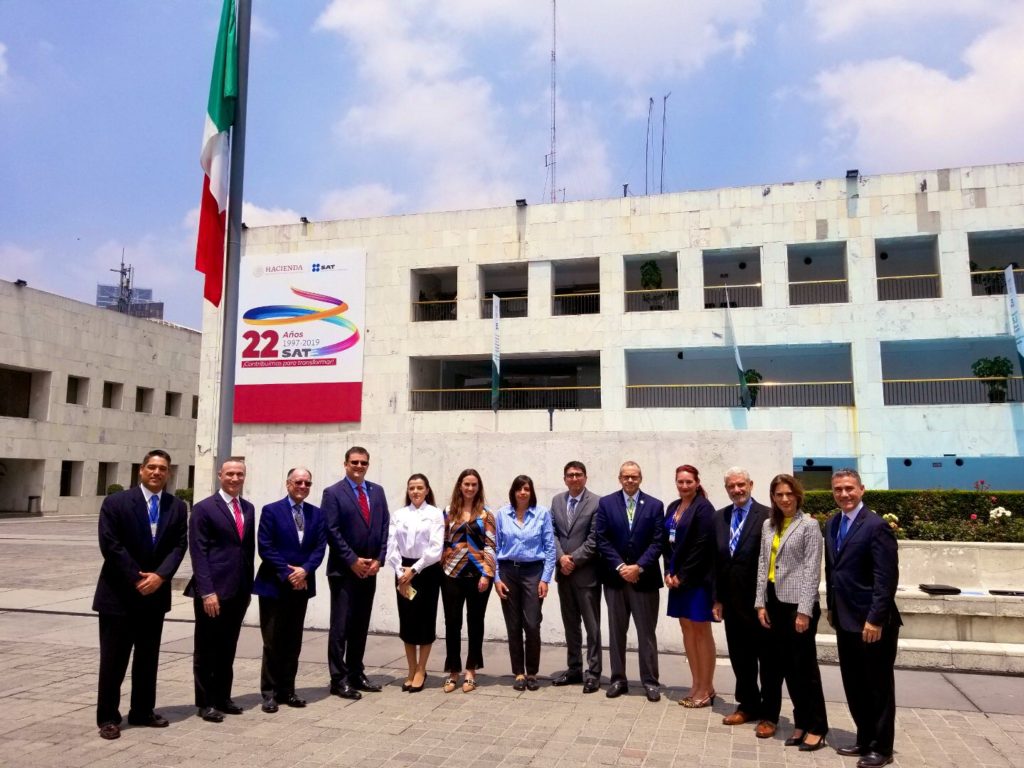
The group met with customs officials, including Gabriela Díaz Maraboto, the Central Administrator for Custom and International Affairs.
Meetings were also held with influential Mexican business organizations, such as the Mexican Business Council for Foreign Trade (COMCE) and the association of Mexican Shipping Agents (AMANAC), as well as the General Coordination of Ports and Merchant Marines. The group discussed current trends and developments within the maritime sector and gained more perspective on the Latin American market.
While in Mexico, the delegation also sponsored the JOC Mexico Trade Forum which focused on domestic and global logistics challenges, innovation, technology, and new ways to mitigate rising diesel fuel costs and persistent security challenges, while boosting visibility and reliability within supply chains.
###
The Florida Ports Council is the professional association of Florida’s public seaports, providing advocacy, leadership and research on seaport-related issues before state and federal government. Florida’s ports support nearly 900,000 jobs in the state and contribute $117.6 billion to the state’s economy each year. The Florida Ports Council administers the Florida Seaport Transportation and Economic Development Council, which is required to provide a 5-year Florida Seaport Mission Plan annually according to Florida Statute. For more information, visit flaports.org.

